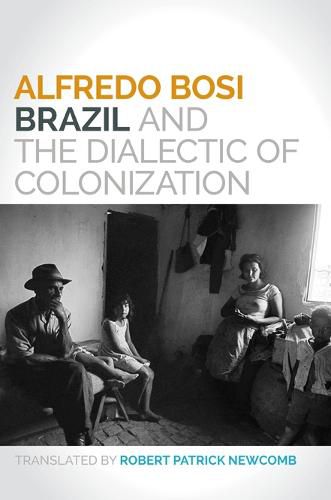Readings Newsletter
Become a Readings Member to make your shopping experience even easier.
Sign in or sign up for free!
You’re not far away from qualifying for FREE standard shipping within Australia
You’ve qualified for FREE standard shipping within Australia
The cart is loading…






A classic of Brazilian literary criticism and historiography, Brazil and the Dialectic of Colonization explores the unique character of Brazil from its colonial beginnings to its emergence as a modern nation. This translation presents the thought of Alfredo Bosi, one of contemporary Brazil’s leading intellectuals, to an English-speaking audience. Portugal extracted wealth from its Brazilian colony. Slaves–first indigenous peoples, later Africans–mined its ore and cut its sugarcane. From the customs of the colonists and the aspirations of the enslaved rose Brazil. Bosi scrutinizes signal points in the creation of Brazilian culture–the plays and poetry, the sermons of missionaries and Jesuit priests, the Indian novels of Jose de Alencar and the Voices of Africa of poet Castro Alves. His portrait of the country’s response to the pressures of colonial conformity offers a groundbreaking appraisal of Brazilian culture as it emerged from the tensions between imposed colonial control and the African and Amerindian cults–including the Catholic-influenced ones–that resisted it.
$9.00 standard shipping within Australia
FREE standard shipping within Australia for orders over $100.00
Express & International shipping calculated at checkout
A classic of Brazilian literary criticism and historiography, Brazil and the Dialectic of Colonization explores the unique character of Brazil from its colonial beginnings to its emergence as a modern nation. This translation presents the thought of Alfredo Bosi, one of contemporary Brazil’s leading intellectuals, to an English-speaking audience. Portugal extracted wealth from its Brazilian colony. Slaves–first indigenous peoples, later Africans–mined its ore and cut its sugarcane. From the customs of the colonists and the aspirations of the enslaved rose Brazil. Bosi scrutinizes signal points in the creation of Brazilian culture–the plays and poetry, the sermons of missionaries and Jesuit priests, the Indian novels of Jose de Alencar and the Voices of Africa of poet Castro Alves. His portrait of the country’s response to the pressures of colonial conformity offers a groundbreaking appraisal of Brazilian culture as it emerged from the tensions between imposed colonial control and the African and Amerindian cults–including the Catholic-influenced ones–that resisted it.